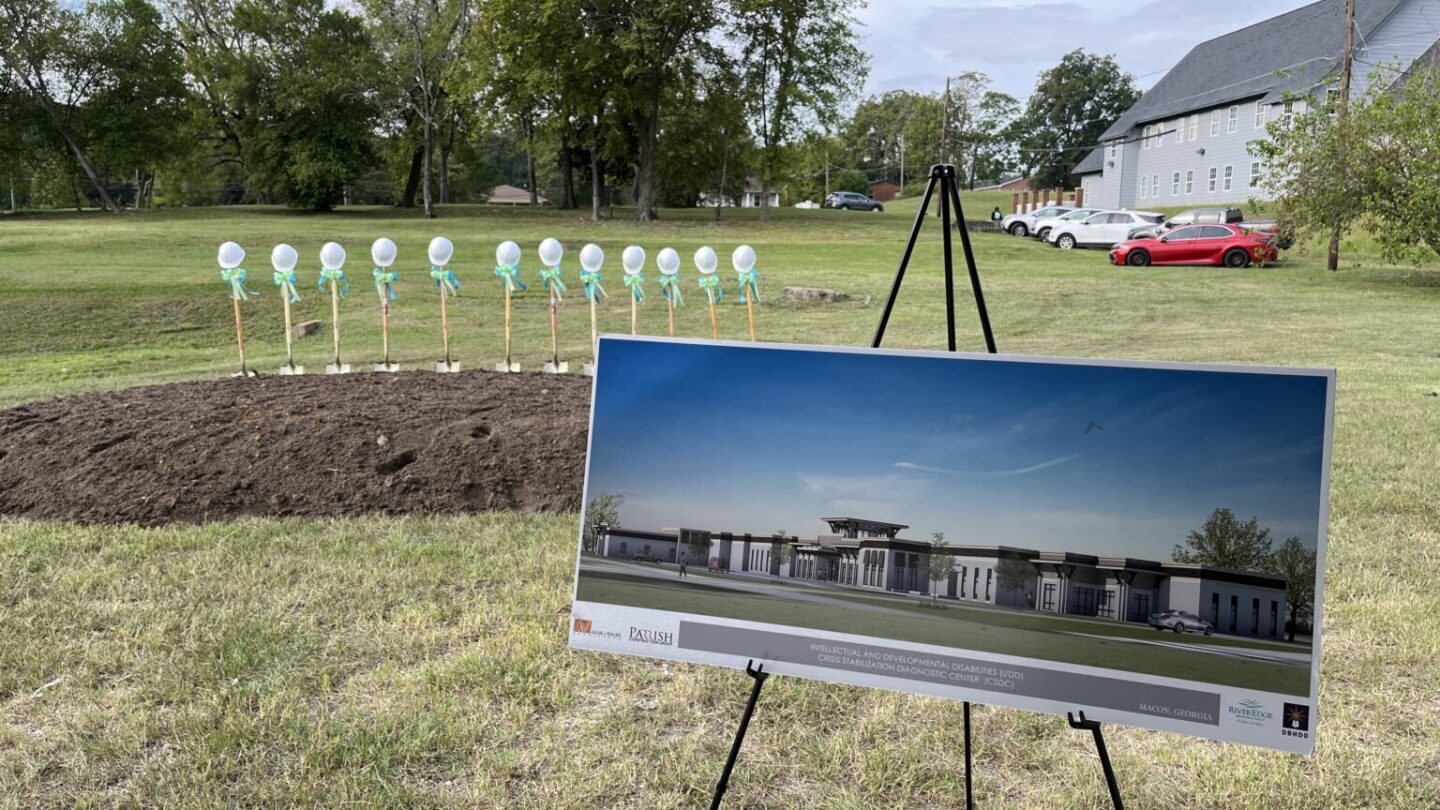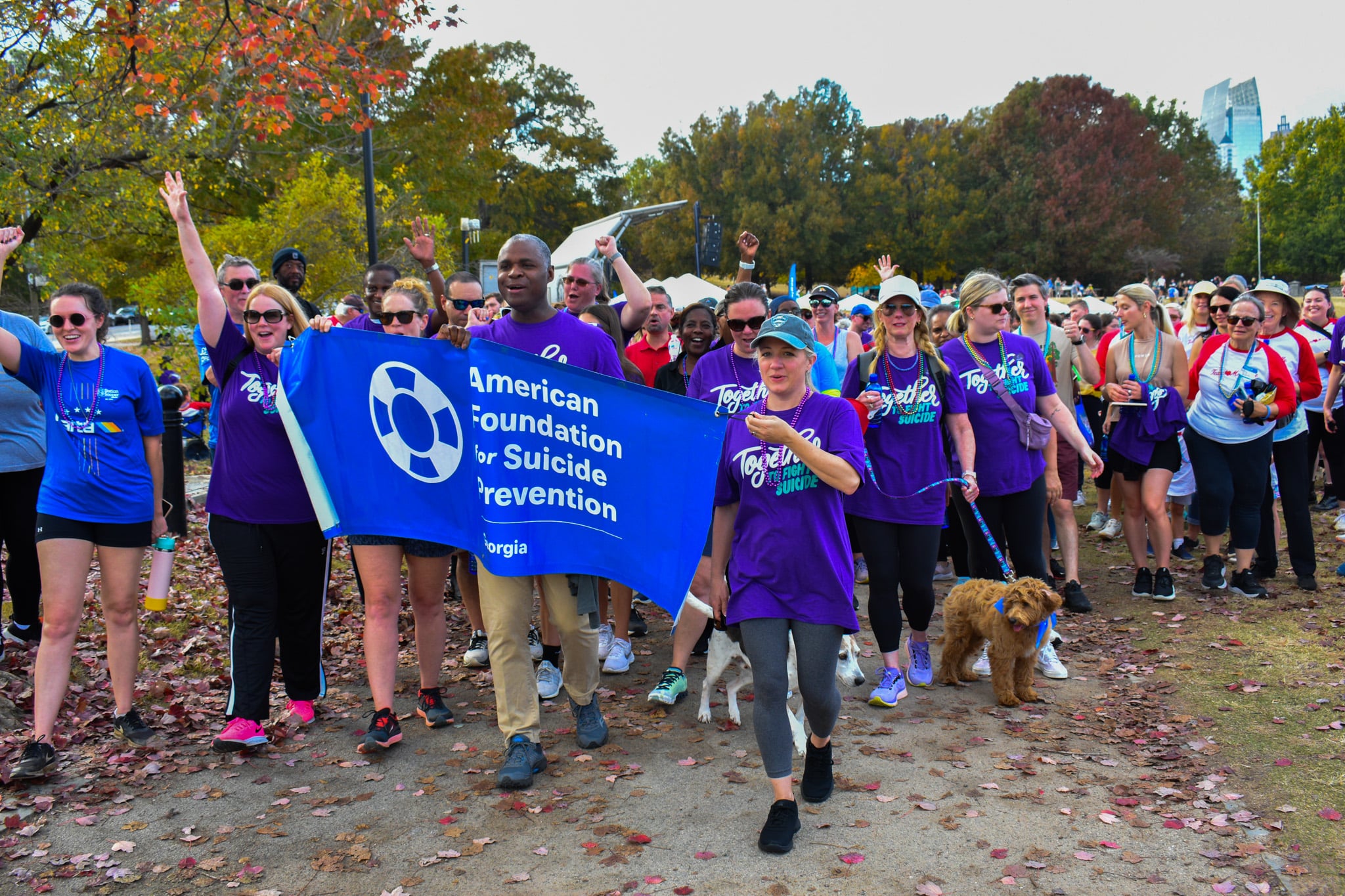Work will soon begin on a new center in Macon that will focus exclusively on serving adults with intellectual and developmental disabilities who also have behavioral health challenges.
The center, which is set to open in early 2025, will treat people with disabilities from all over the state who might otherwise end up at local hospitals with no place else to go. But it will also provide outpatient care for locals.
“We have a gap right now where we have individuals – on average about 21 people every single day – stuck in an emergency room in Georgia with a developmental disability, and that’s not the proper place for them,” Kevin Tanner, commissioner of the state Department of Behavioral Health and Developmental Disabilities, told reporters after a ceremonial groundbreaking held Wednesday.
Tanner said the new center in downtown Macon will be a place where people with disabilities can find specialized care. He said it will be the first center in Georgia with behavioral health crisis care and outpatient services for people with disabilities at one place.
That’s significant, for example, because someone who is unable to speak may have trouble communicating something as simple as a toothache, which can present as a behavioral health issue. The center will have 16 beds.
State and local leaders say the center can serve as a national model.
The project was first funded in 2021 when state lawmakers set aside $7 million to go toward construction, which will start in the coming weeks. The project is being built on Macon-Bibb County public property and is part of a partnership with Mercer University and the regional community service board, River Edge Behavioral Health.
Tanner has requested $3.2 million for next year’s budget to run the center as part of his agency’s budget submission to the governor’s office. Gov. Brian Kemp will unveil his budget proposal in January, when lawmakers return to Atlanta for the 2024 legislative session.
“We need to fund it this year. The state has millions and millions of dollars in state surplus, and some of that needs to go to worthy projects like this right here,” Macon Mayor Lester Miller said during Wednesday’s event. “I hope that’s a message you’ll take back.”
Dempsey said afterwards that the center’s needs will likely continue to grow as it takes shape but so will the results.
“It has the opportunity to be a positive fork in the road that might keep them from having more challenging, life-robbing incidents,” Dempsey said. “This is life-giving, it really is. It’s going to be a game-changer.”
State officials also hope the center can help beef up the workforce providing care to people with disabilities by training the next generation of health care providers.
Dr. Jean Sumner, who is the dean of the school of medicine at Mercer and a member of DBHDD’s advisory board, said there are few opportunities today to learn about this community’s complex and unique needs.
“This facility offers the promise of educating caring professionals who become expert clinicians and set an example for other states,” Sumner said. “Importantly, clinical research can happen here, which will continue to raise the quality of care for this important population.”
‘This is not a permanent placement for these individuals’
As Tanner outlined the vision for the center Wednesday, he also offered assurances to those in the disability community that the center is just a “temporary stopgap.”
Tanner pledged that the discharge planning process would start as soon as the patient enters the building.
“The day they walk into this facility, the state and River Edge will begin planning their exit from this facility and back to community living,” Tanner said. “This is not a permanent placement for these individuals.”
Tanner said the average stay will be about three months, and during that time, the patient can receive a range of care, from dentistry to psychiatry.
Robb said the center also highlights the importance of making sure supportive services are available once the person leaves the center.
Advocates have been pressing state lawmakers to increase funding for Medicaid services for the more than 7,000 people on a waiting list and setting aside the $107 million needed to give low-paid caregivers a $6 pay bump in hopes of bolstering the workforce people with disabilities rely on.
“We could literally build the best crisis center known to humankind. It’s not going to have the impact we want unless we have quality services in the community,” Robb said in an interview.
“Yes, we have people with developmental disabilities in crisis and we are not supporting them adequately. We need to address that,” she said. “However, we have got to pass the provider rate study. We have got to fund the waiting list. Because dealing with people in crisis, that’s just the crisis part of the problem.”
This story was provided by WABE content partner Georgia Recorder.









